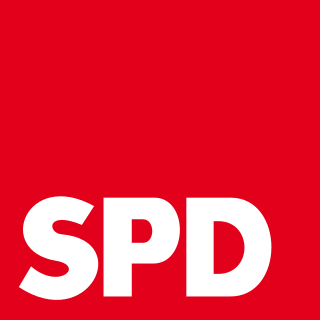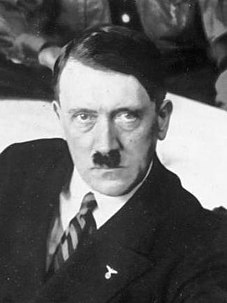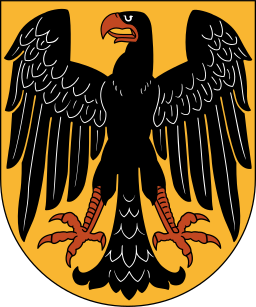1933 German election may refer to:
1933 German election may refer to:
Diet may refer to:
Adolf Hitler (1889–1945) was the leader of Nazi Germany from 1933 to 1945.
Henry VII may refer to:
Reichstag is a German word generally meaning parliament, more directly translated as Diet of the Realm or National diet, or more loosely as Imperial Diet. It may refer to:

The Social Democratic Party of Germany is a social democratic political party in Germany. It is one of the two major parties of contemporary Germany along with the Christian Democratic Union of Germany (CDU).

The Enabling Act of 1933, officially titled Gesetz zur Behebung der Not von Volk und Reich, was a law that gave the German Cabinet—most importantly, the Chancellor—the powers to make and enforce laws without the involvement of the Reichstag and with no need to consult with Weimar President Paul von Hindenburg. Critically, the Enabling Act allowed the Chancellor to bypass the system of checks and balances in the government and these laws could explicitly violate individual rights prescribed in the Weimar Constitution.

The Constitution of the German Reich, usually known as the Weimar Constitution, was the constitution that governed Germany during the Weimar Republic era (1919–1933). The constitution declared Germany to be a democratic parliamentary republic with a legislature elected under proportional representation. Universal suffrage was established, with a minimum voting age of 20. The constitution technically remained in effect throughout the Nazi era from 1933 to 1945, though practically it had been repealed by the Enabling Act of 1933 and thus its various provisions and protections went unenforced for the duration of Nazi rule.
Antifa may refer to:
German concentration camps may refer to different camps which were operated by German states:

Federal elections were held in Germany on 6 November 1932. The Nazi Party saw its vote share fall by four percentage points, while there were slight increases for the Communist Party of Germany and the national conservative German National People's Party. The results were a great disappointment for the Nazis, who lost 34 seats and again failed to form a coalition government in the Reichstag.
Blondie is a term sometimes used to refer to a person with blond hair.
17th Nova Scotia general election may refer to:

The Reichstag was the lower house of the legislature of the Weimar Republic. It originated in the creation of the Weimar Constitution in 1919. After the end of the Weimar Republic in 1933, the Reichstag continued to operate, albeit sporadically, as the purely ceremonial legislature of Nazi Germany.
Robert Mayer may refer to:

The Reichstag, officially the Großdeutscher Reichstag after 1938, was the pseudo-Parliament of the Third Reich from 1933 to 1945. Following the Nazi seizure of power and the enactment of the Enabling Act of 1933, it was meant only as a rubber stamp for the actions of Adolf Hitler's dictatorship — always by unanimous consent — and to listen to Hitler's speeches. In this purely ceremonial role, the Reichstag convened only 20 times, the last on 26 April 1942. The President of the Reichstag throughout this period was Hermann Göring.
Charlot is a Danish, German, Norwegian, and Swedish feminine given name that is an alternate form of Charlotte and a feminine form of Carl as well as the masculine Charlot. Charlot is a French masculine given name that is a diminutive form of Charles and a masculine form of Charlotte. Notable people referred to by this name include the following:
Karl Otto or Karl-Otto is a blended given name. Notable people known by this name include the following:
Kalla, Kállá or Källa is a given name and surname. It is a Danish, Finnish, Icelandic and Swedish feminine given name that is a feminine form of Kalle, short form of Karolina and an alternate form of Karla. Kalla is also an English feminine given name, but its derived from the Greek root name Kalós. Kállá is a Sami masculine given name that is an alternate form of Kalle. Notable people who are known by this name include the following:
Lotti is a Danish, German, and Swedish feminine given name that is a diminutive form of Charlotte or Lieselotte, an alternate form of Lotte, and that is also related to Lisa, Elisa and Elisabeth. Notable people with the name include the following:
2021 Christian Democratic Union of Germany leadership election may refer to: